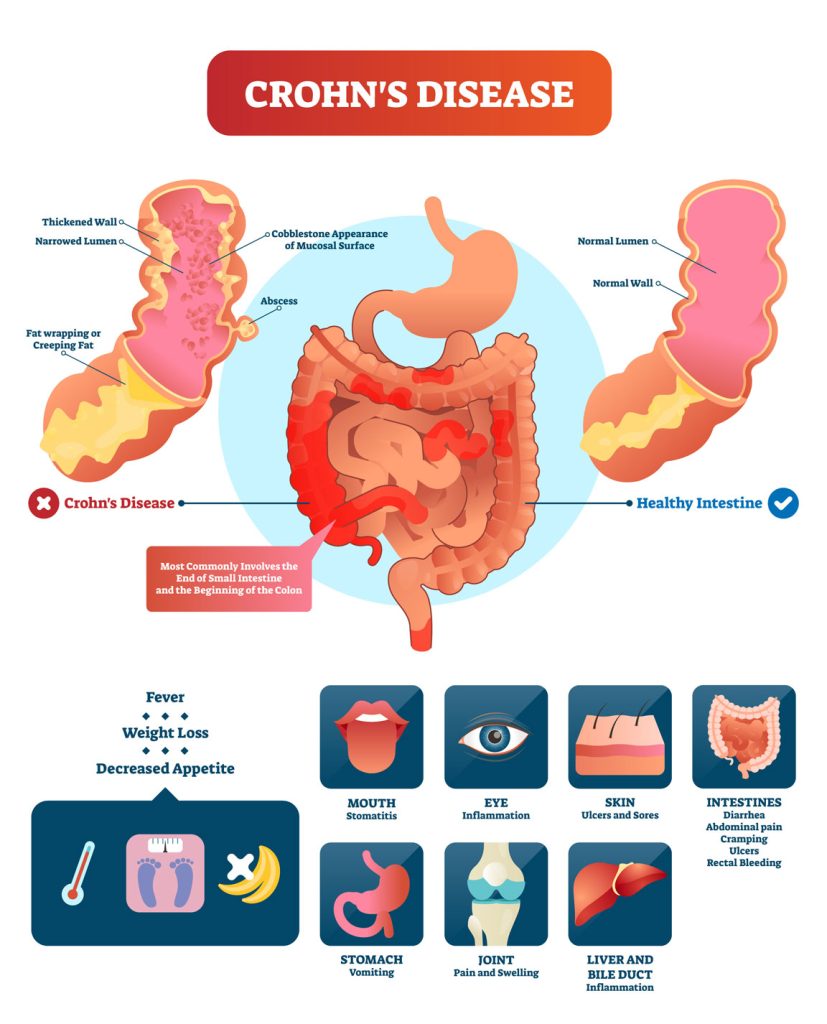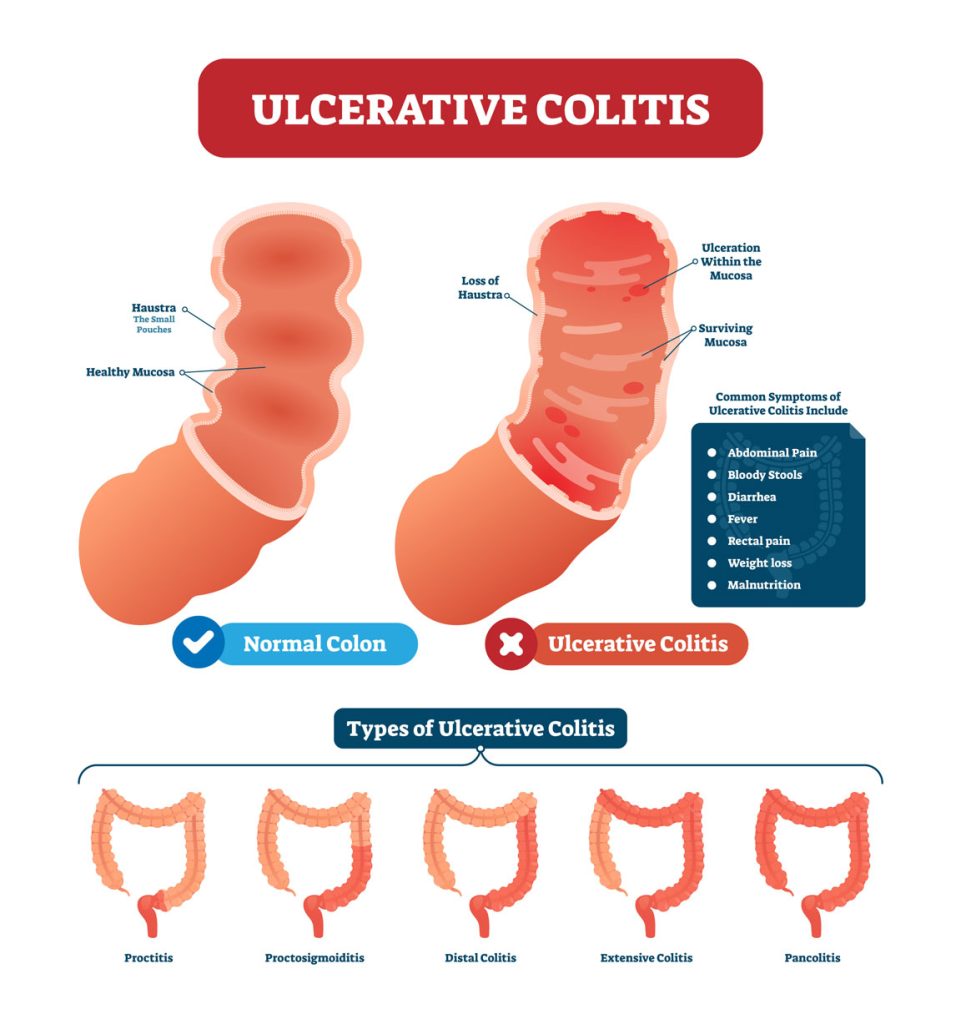This first week of December is Crohn’s and Colitis Awareness Week. These inflammatory bowel diseases (IBDs) affect more than one million people throughout the US. This article will provide helpful information on both of these medical conditions, giving you a better understanding of their symptoms and some ways to mitigate them.
What Is Crohn’s Disease?
Crohn’s disease is a chronic disease that causes inflammation and irritation in your digestive tract. Most commonly, Crohn’s affects your small intestine and the beginning of your large intestine. However, the disease can affect any part of your digestive tract, from your mouth to your anus. Learn more about your digestive system and how it works.
Crohn’s disease is an inflammatory bowel disease (IBD). Ulcerative colitis and microscopic colitis are other common types of IBD.
Crohn’s disease most often begins gradually and can become worse over time. You may have periods of remission that can last for weeks or years.
–National Institute of Diabetes and Digestive and Kidney Diseases

How Can My Diet Help the Symptoms of Crohn’s Disease?
Changing your diet can help reduce symptoms. Your doctor may recommend that you make changes to your diet such as:
- avoiding carbonated, or “fizzy,” drinks
- avoiding popcorn, vegetable skins, nuts, and other high-fiber foods
- drinking more liquids
- eating smaller meals more often
- keeping a food diary to help identify foods that cause problems
Depending on your symptoms or medicines, your doctor may recommend a specific diet, such as a diet that is:
- high calorie
- lactose free
- low fat
- low fiber
- low salt

What Is Ulcerative Colitis?
Ulcerative colitis is a chronic disease in which abnormal reactions of the immune system cause inflammation and ulcers on the inner lining of your large intestine.
Ulcerative colitis can begin gradually and become worse over time. However, it can also start suddenly. Symptoms can range from mild to severe. In between periods of flares—times when people have symptoms—most people have periods of remission—times when symptoms disappear. Periods of remission can last for weeks or years. The goal of treatment is to keep people in remission long term.
Ulcerative colitis is an inflammatory bowel disease (IBD). Crohn’s disease and microscopic colitis are other common types of IBD.
What Are the Symptoms of Ulcerative Colitis?
Symptoms of ulcerative colitis vary from person to person. Common symptoms of ulcerative colitis include:
- diarrhea
- passing blood with your stool or rectal bleeding
- cramping and pain in the abdomen
- passing mucus or pus with your stool
- tenesmus, which means feeling a constant urge to have a bowel movement even though your bowel may be empty
- an urgent need to have a bowel movement
Some symptoms are more likely to occur if ulcerative colitis is more severe or affects more of the large intestine. These symptoms include:
- fatigue, or feeling tired
- fever
- nausea or vomiting
- weight loss
Understanding Crohn’s and Colitis
As some of the symptoms of Crohn’s Disease and Colitis are similar to other digestive diseases, it is important to see your doctor to determine a proper diagnosis. As with nearly all medical conditions, early detection is key to improving your overall quality of life and physical well-being.
